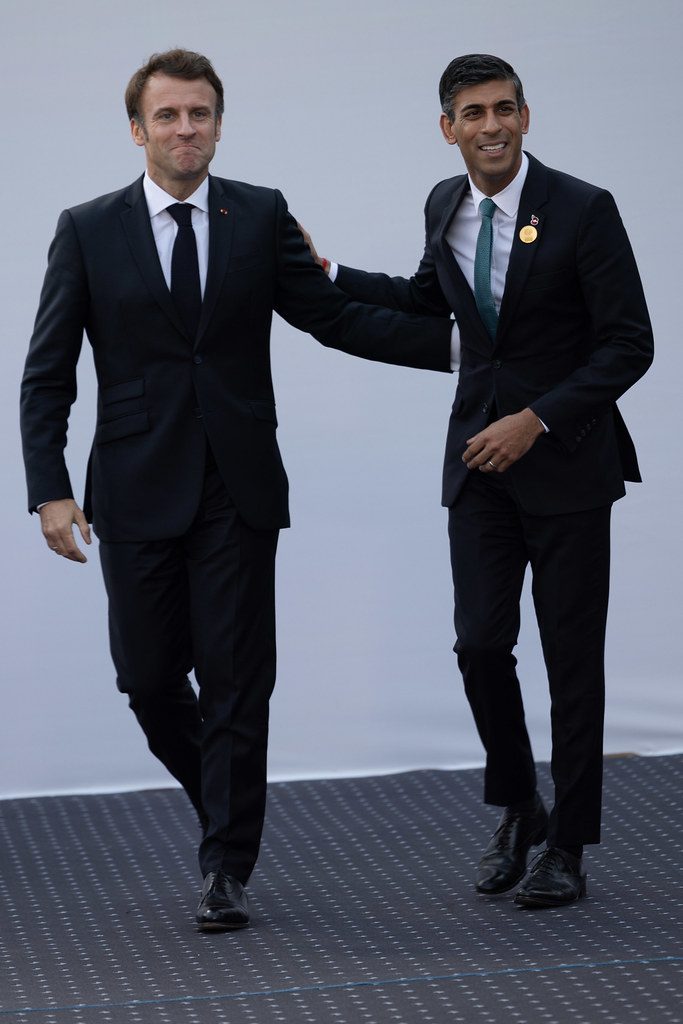
On November 7th, on the sidelines of the COP27 climate summit, French President Emmanuel Macron and British Prime Minister Rishi Sunak met in the flesh. Their first-time meeting hints at a future deal—currently, light on detail—for the handling of the UK’s unprecedented migrant crisis.
Speaking to the press afterward, Sunak disclosed that he had “renewed confidence and optimism” after the meeting with Macron, as it offered an opportunity to work closely with France, as well as other countries, to tackle illegal migration. He remained tight-lipped concerning any details however, since those would follow “in the coming weeks, as those conversations happen amongst all our teams.”
Friends 🤝
— Rishi Sunak (@RishiSunak) November 7, 2022
Partners 🌍
Allies 🇬🇧🇫🇷
Great to meet with @EmmanuelMacron today at #COP27. pic.twitter.com/ZC32wKjvPU
A spokesman later said “a deal is being discussed” between the two countries, which he believed to be “in its final stages.”
So far this year, around 40,000 migrants set foot on British soil after having crossed the English Channel on small boats from France. Processing centers are saturated; in southern Britain, the center in Kent has been overwhelmed for weeks. Meanwhile, the British government is bleeding an estimated €8 million a day in housing costs alone.
The UK’s Office for National Statistics’ findings in its Census 2021 report provided further cause for alarm over uncontrolled immigration.
Data there revealed that 1 in 6 people living in England and Wales in 2021 were born outside the UK—at 10 million, a 33% increase from 7.5 million at the time of the last census in 2011.
It also showed that half of the total population increase was due to positive net migration—the difference between those who immigrated into and emigrated out of England and Wales.
Sunak, then, is under great pressure to intervene quickly and to at least appear to be doing something about illegal migration. Indeed, it is a chance to prove his mettle as the new PM, having landed the job on October 25th after an overwhelming vote by Tory MPs.
Furthermore, in light of the various crises—besides the flood of illegal migrants, a near-apocalyptic cost-of-living crisis gripping the UK—the decision to seek assistance from France is a pragmatically sound one.
His predecessors, Boris Johnson and Liz Truss, had been far more standoffish towards the French PM. Truss, then still Foreign Secretary, went so far as to openly question whether Macron was friend or foe during the Tory leadership campaign last August—which caused a great deal of damage to British-French relations.
Earlier this year, the two countries were on the edge of formalizing an agreement that would allow British immigration officers to be deployed on the other side of the Channel. It would have involved a £50 million payment from the UK to France in order to boost joint patrols.
Also included in the agreement was a provision which would allow Home Office immigration intelligence officials to work on French territory, along with other UK Border Force officers.
Relations between the nations, then, were in much need of mending, as Sunak is now attempting to do. In contrast to his predecessors, Sunak deals with his French counterpart quite amicably.
The strategy may have its pay offs.
